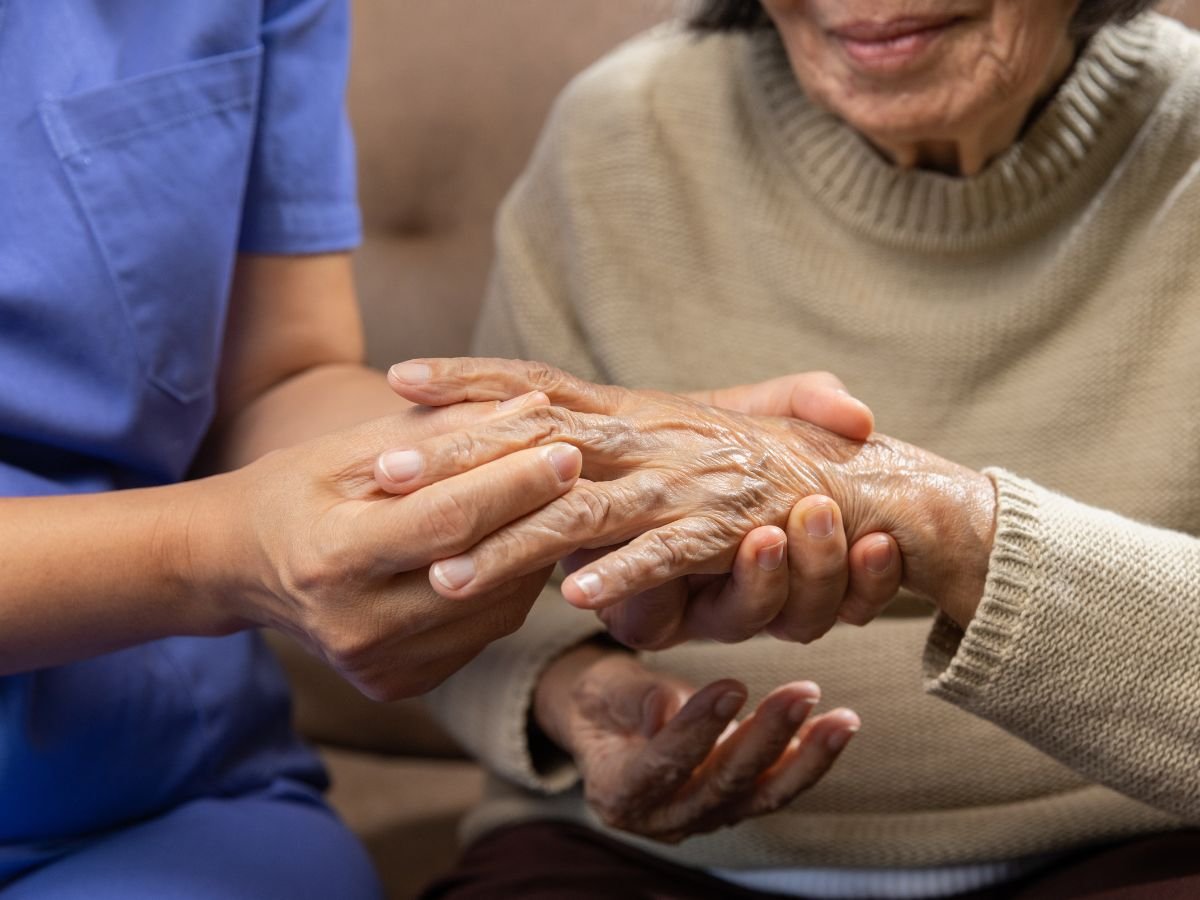
Why Is My Elderly Parent Always Cold
Family members often notice that their elderly parents seem unusually sensitive to cold, sometimes expressing concerns such as “My senior is always cold” or observing persistent shivering. This experience is common among older adults and can be both uncomfortable and indicative of underlying health concerns.

Support Groups and Resources for Families Affected by Alzheimer’s
Alzheimer’s disease is a progressive neurological disorder that affects millions of seniors and their families across the United States. In Georgia, the impact of Alzheimer’s is deeply felt, as families navigate the emotional, physical, and financial challenges that come with caring for a loved one diagnosed with this condition. Access to support groups and comprehensive resources is essential for families seeking guidance, understanding, and practical assistance.

Best Strategies For Long-term Stroke Rehabilitation For Seniors
Stroke recovery is a journey that requires patience, dedication, and a comprehensive approach to rehabilitation. For seniors, the process can be particularly challenging, but with the right strategies and support, significant progress is possible. This blog explores various rehabilitation techniques and therapies that aid long-term recovery for stroke survivors, and how families can support their loved ones throughout the process.

Why Sleep Matters for Seniors and How to Enhance It
Sleep is a fundamental component of overall health, and its importance becomes even more pronounced as individuals age. For seniors, quality sleep is crucial for maintaining physical health, cognitive function, and emotional well-being. However, many seniors face challenges in achieving restful sleep. This blog explores the significance of sleep for senior citizens, common reasons for sleep disturbances, and practical ways families can help improve sleep for seniors.

Helping Seniors Manage Stress and Anxiety Naturally
Emotional health in older adults often goes unnoticed, even though stress and anxiety can deeply affect their overall well-being. Unlike younger individuals who may express emotional strain openly, seniors often exhibit more subtle signs. A withdrawn demeanor, sudden irritability, disrupted sleep, or even physical discomfort might point to something deeper—chronic stress or anxiety that’s quietly building over time.

Creating a Safe and Comfortable Home for Seniors
Aging at home is the preferred option for many seniors today, offering familiarity, autonomy, and emotional security. However, as individuals grow older, the home environment must adapt to support both safety and comfort. Without thoughtful modifications, even the most familiar setting can pose unexpected risks.

Tips for Communicating Clearly with Seniors with Dementia
As dementia progresses, communication becomes one of the most significant challenges for both the senior and the caregiver. Whether you’re communicating with elderly parents or providing daily care for someone with cognitive decline, patience and understanding are critical. Difficult conversations, forgotten words, and confusion can all create moments of frustration, but there are ways to foster more meaningful connections.

Healthy Diet Tips for Seniors and What to Know for Better Nutrition
Maintaining a healthy diet becomes increasingly important with age. As metabolism slows and nutritional needs shift, the right balance of nutrients can support energy, immune function, and overall wellness. For older adults, proper diet not only promotes longevity but also improves quality of life.

Understanding the Role of Companion Care for Senior Health
As seniors age, their needs evolve—physically, emotionally, and socially. While medical care remains a top priority, emotional and social well-being are often overlooked. Companion care for seniors fills this essential gap, offering support that promotes not only wellness but also dignity, autonomy, and peace of mind.

Supporting Seniors with Grief and Emotional Loss
Grief is a complex emotional response that does not follow a predictable path, especially for seniors who may experience multiple layers of loss in a short time—spouses, siblings, lifelong friends, or even their independence. Aging often brings a shift in how individuals cope with grief, and for seniors, that grief can be isolating, compounded by physical limitations, memory loss, or a diminished support system.

How to Maintain Senior Independence While Receiving Care
Maintaining seniors’ independence and mobility becomes crucial for both their physical and emotional well-being as the age. Aging often brings physical, emotional, and cognitive changes that may require additional care. However, one of the most significant challenges for both seniors and their caregivers is striking the right balance between receiving necessary assistance and maintaining elderly independence.

Effective Communication with Seniors with Dementia
Dementia, including Alzheimer’s disease, is a condition that can significantly affect a person’s memory, cognitive abilities, and communication skills. As the disease progresses, seniors with dementia often struggle with expressing themselves, understanding others, and remembering important details. Effective communication with seniors is essential in ensuring that they feel heard, understood, and respected.

Managing Chronic Pain in Seniors—Tips and Solutions
Chronic pain among seniors is a widespread issue that can significantly impact their quality of life. As we age, our bodies naturally undergo changes that make us more susceptible to conditions like arthritis, osteoporosis, and back pain. Managing chronic pain in seniors is crucial to maintaining independence, improving overall well-being, and helping seniors enjoy their golden years with minimal discomfort.

How Homecare Services in Georgia Can Ensure Senior Health and Safety
Maintaining our senior loved ones’ independence while ensuring they receive the care they need can be a challenge. Quality in-home care for seniors is an excellent solution for families who want their elderly loved ones to remain in a familiar environment while receiving personalized support.

A Guide for Seniors Using Smartwatches
Technology and innovation for seniors have come a long way, and one of the most impactful advancements is the smartwatch. These devices are more than just timekeepers—they provide numerous features designed to help seniors maintain independence, monitor their health, and stay connected with loved ones.

Managing Fear as a Family Caregiver
Caring for an aging parent can be one of the most rewarding yet emotionally challenging tasks a family member can undertake. As family caregivers, it's normal to experience a mix of emotions, including fear and anxiety about our loved one’s health and well-being.

Should Your Senior Get a Pet?
Pets bring immeasurable joy and companionship into our lives, and for seniors, their presence can offer a range of emotional, physical, and mental benefits. A furry friend can greatly improve the quality of life for older adults, helping them stay active, connected, and emotionally supported.

Why Is Exercise Important for Senior Health and Mobility?
As we age, staying active becomes more important than ever for maintaining senior physical health. Exercise for seniors is not just about staying fit, but about ensuring mobility, reducing the risk of chronic diseases, and enhancing overall well-being.

How Can You Create a Long-Term Plan for Your Senior Parent?
While the idea of planning for future care needs can feel overwhelming, starting early and being proactive can help ensure that you make informed decisions that align with your loved one’s health, preferences, and financial situation. Here’s a guide to help you approach long-term care planning for seniors.

How Does Companion Care for Seniors Enhance Social Interaction?
As we age, maintaining strong social connections becomes even more important for our overall well-being. Seniors, especially those who live alone or experience health challenges, often struggle with isolation and loneliness.

